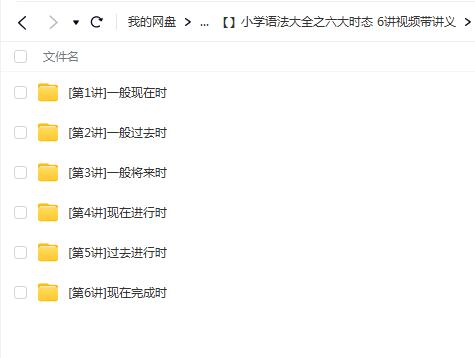英语8大时态
发布于 2021-11-05 16:12 ,所属分类:中小学英语考试学习资料
1.一般现在时的用法
(1)表示经常性、习惯性的动作和现在的状态、特征, 句中常用often, usually, every day等时间状语。如:
He goes to school every day.(经常性动作)
他每天去上学。
He is very happy.(现在的状态)
他很高兴。
(2)表示按计划、规定要发生的动作。如begin, come, leave, go, arrive, start, stop, return, open, close等。
The train starts at nine in the morning.
火车早上九点钟开。
(3)表示客观真理
The earth moves around the sun.表
(4) 在时间状语从句和条件状语从句中, 用现在时代替将来时。如:
If you come this afternoon, we’ll have a meeting.
如果下午你来, 我们就开会。
2. 一般过去时的用法
表示过去某时间发生的事、存在的状态或过去反复发生的动作。如:
He saw Mr. Wang yesterday.
昨天他看见王先生了。
He worked in a factory in 1986.
1986年他在一家工厂做工。
3.一般将来时的用法
一般将来时表示将来的动作或状态, 有以下几种。
“be going to+动词原形”
表示“计划、打算要做某事”
表示根据现在的迹象,对未来进行推断。
It is going to rain. 天要下雨了。
We are going to have a meeting today.
今天我们开个会。
(2)“will或shall+动词原形”表示说话时临时决定干某事。
I will answer it.
(3)“be to+动词原形”表示按计划要发生的事
Are we to go on with this work?
我们要继续这项工作吗?
(4)“be about to+动词原形”表示即将发生的动作。如:
The plane is about to leave.
飞机即将起飞。
(5)某些词, 如come, go, leave, arrive, start等的一般现在时可表示将来。如:
The meeting starts at five o'clock.
会议五点钟开始。
4.现在进行时的用法
(1)表示此时此刻正在进行的动作, 由“be+现在分词”构成。如:
What are you doing?你在干什么?
(2)按计划、安排近期发生的动作。如:
I’m leaving for Beijing tomorrow.
明天我要到北京去。
(3)与always, constantly等连用, 表示感情色彩。如:
He is always helping others. 他总是帮助别人。
另外“系动词+介词或副词”也表示进行时的意义。如:
The bridge is under construction.
桥梁正在建设中。
(4)用进行时表示渐变过程。如:
His health is improving each day.
他的健康状况每天都在好转。
5.过去进行时的用法
(1)表示过去某一时刻、某一阶段正进行的动作, 由“was (were)+现在分词”构成。如:
He was reading a novel when I came in.当我进来时, 他正在看小说。
(2)与always, forever, constantly连用, 表示赞成或厌恶的感情色彩。如:
He was always thinking of others, never thinking of himself.
他总是考虑别人, 从未考虑自己。
6.现在完成时的用法
现在完成时由“has/have+过去分词”构成。有2种用法:
(1) 持续性用法
He has studied English for 5 years.
他学习英语已经五年了。
He has studied English since 1985.
自从1985年以来他就学习英语。
(2)影响性用法
He has seen the film.
他已经看过这部电影了。(他很熟悉内容)
He has finished his homework.
他已经完成作业了。(他可以出去玩了)
7. 过去完成时的用法
表示过去的过去
By the time he was twelve, Edison had begun to make a living by himself.
到了十二岁那年, 爱迪生开始自己谋生。
I had learnt 5000 words before I entered the
university.
我上大学之前就已经学了5000个英语单词了。
When the police arrived, the thieves __had run away_____(run away).
When I came into the classroom, my dear students ___had begun_ (begin) reading.
8. 过去将来时的用法
表示从过去的某时间看来将要发生的动作或存在的状态。由“should或would+动词原形”构成。第一人称用should, 其他人称用would。如:
They were sure that they would succeed.
他们确信他们会成功。
喜欢这期内容的话,看完,请记得给我点个“在看"!谢谢~
点个 “在看" 或 分享 就是最大的肯定!谢谢~
















![[JAVA] Java8十大新特性详解 带你极速学习Java8新特性 极客学院JAVA8新特性视频教程](https://static.kouhao8.com/sucaidashi/xkbb/e4942238b92e56e454abb60596981b02.jpg?x-oss-process=image/format,webp/resize,w_88/crop,w_88,h_88,g_nw)

![【徐磊】2023英语语法课8讲视频[百度云资源]](https://static.kouhao8.com/cunchu/cunchu7/2023-05-18/UpFile/defaultuploadfile/230425ml/240-1.jpg?x-oss-process=image/format,webp/resize,w_88/crop,w_88,h_88,g_nw)








相关资源